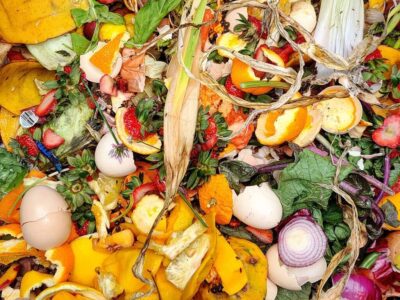
Prior to joining the Master of Science in Sustainability Management program in the fall of 2011, Katrina Prutzman (’14) worked as a manufacturing process engineer for 3M Purification, Inc. where she implemented manufacturing improvements and developed new production processes in the making of a variety of filtration products. While a student in the program, Katrina spent the summer of 2013 as an EDF Climate Corps Fellow, using the technical skills that she had gained through her experience with manufacturing and engineering to identify energy saving initiatives for Union Pacific Railroad. Currently, Katrina works for Urban Green Energy, a distributed renewable energy provider, where she is responsible for ensuring the consistent product quality at the company’s vertical axis wind turbine manufacturing facility in East Asia.
1. What is your current job?
I work for a distributed renewable energy provider, Urban Green Energy, a startup based in New York City. In my current position as Production Operations Manager, I am responsible for ensuring consistent product quality at our vertical axis wind turbine manufacturing facility in East Asia. Part of this responsibility involves the implementation of documentation to ensure a consistent and controlled manufacturing process.
2. Do your current job responsibilities align with the professional goals that you originally had when you began the MSSM program?
Yes, in joining the MSSM program I wanted to build on my experience in manufacturing and Engineering, and transition those technical skills into the field of renewable energy in a way that would also build my leadership and management experience. The classes and networking opportunities provided to me through the MSSM program have expanded my view of integrated sustainability, and this new position in manufacturing operations will allow me to apply these skills in an exciting and growing field.
3. What skills has the MSSM program taught you that you think will prove useful to your current position?
The capstone workshop provided a great opportunity to grow my management skills in organizing and tackling a large, complex, and cutting edge sustainability problem. I hope to apply and expand these organizational and leadership skills in my role at UGE to manage a team across two continents in applying known manufacturing best practices to the field of rapidly developing vertical axis wind turbine technology.
4. How has collaborating with your fellow students benefitted you professionally and personally?
The students in the program bring their own passions on a wide range of sustainability interests, and that energy is inspiring and contagious. Each student has a unique background and perspective to contribute to the learning environment, and all are critical in understanding and applying the reaches of sustainability. While my focus is on sustainability in energy, my classmates have deepened my appreciation for sustainability in agriculture, water systems, mining, fashion, the built environment, social ventures, and a host of other topics. Some issues can be woven into my profession, but all touch at least some aspect of my personal life and affect the choices that I make.
5. What kinds of environmental initiatives do you hope to start in your new position?
As part of my task in optimizing production, I hope to be able to institute manufacturing controls that enable lower scrap and defects in order to reduce material use and ultimately save money. Reduced costs will contribute to faster growth of the company.
6. How do you intend to utilize your degree from the MSSM program to further your career?
The knowledge, experience, and networking connections I have built throughout my time in MSSM will be invaluable to me throughout my career in renewable energy. Like the broader field of sustainability, this field is rapidly changing and developing. The resources and skills I have acquired will enable me to make an impact in this field which is integral to our future success as a society.
The M.S. in Sustainability Management, co-sponsored by the Earth Institute and Columbia’s School of Continuing Education, trains students to tackle complex and pressing environmental and managerial challenges. The program requires the successful completion of 36 credit points. Those credit points are divided among five comprehensive content areas: integrative sustainability management, economics and quantitative analysis, the physical dimensions of sustainability, the public policy environment of sustainability management, and general and financial management. Visit our website to learn more.



